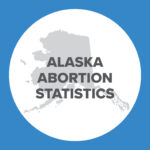Supreme Court Will Review Abortion Drug Cases
Today the U.S. Supreme Court announced it will review two cases where the government is trying to force Christian-owned businesses to provide health care coverage that includes abortion-inducing drugs.
One case involves a legal challenge brought by Hobby Lobby Stores, Inc. and Mardel, Inc. Hobby Lobby is a chain of more than 500 arts-and-crafts stores with more than 13,000 employees. Mardel is an affiliated chain of 35 Christian bookstores with about 400 employees.
Hobby Lobby and Mardel are owned and operated, through a management trust, by the Green Family: David and Barbara and their children Steve, Mart, and Darsee.
The other case involves a legal challenge brought by Conestoga Wood Specialties, a cabinetmaker company in Pennsylvania. Conestoga is owned by the Hahn Family: Norman, Elizabeth, Norman Lemar, Anthony, and Kevin.
Both the Green family and the Hahn family are Christian. And both families object to providing company health insurance plans that include drugs and devices that can cause abortion.
Under Obamacare regulations health insurance plans must include “[a]ll Food and Drug Administration approved contraceptive methods, sterilization procedures, and patient education and counseling for all women with reproductive capacity,” as prescribed. The law provides that these services must be offered on a preferential basis, that is, cost-free to the insured.
This rule is known as the Obamacare contraception mandate. It has generated massive litigation.
According to the Greens, who own Hobby Lobby and Mardel, the Obamacare contraception mandate “includes drugs and devices—namely, Plan B, Ella, and two intrauterine devices—which, the government concedes, may prevent an embryo from implanting in the womb.” The Greens argue that, “given their beliefs,” they cannot provide insurance that includes these drugs and devices “without facilitating what they believe to be an abortion.”
The Hahns object to the mandate on similar if not identical grounds.
These cases will undoubtedly reinvigorate cries of a so-called “war on women.” The argument and rhetoric are faulty. Pro-life advocates should be prepared to respond.
The companies and their Christian owners in these cases are not asking for the government to restrict the freedom of private citizens to access contraceptives and abortion. Nor is the issue in these cases whether the government should or should not provide or pay for those products and services itself.
Indeed:
- Private individuals have the freedom to obtain contraceptives.
- Private companies have the freedom to provide contraceptives and other services to employees however they see fit.
- Furthermore, governments routinely pay for private individuals to access contraceptives.
The question is whether the government should force Christian families that own businesses to violate their conscience by including what extensive evidence shows are abortion-causing drugs and devices in their company health insurance plans.
By deciding to review their cases, the Supreme Court now has the opportunity to protect the religious freedom of Hobby Lobby, Mardle, and Conestoga Wood Specialties and the Christian families that own them.
The issue of conscience protection involved is ultimately universal and transcends the particulars of these cases. If the government can require private parties to provide abortion-inducing drugs, it may likewise compel them to provide elective abortion, prescriptions for assisted suicide, and other procedures (or even limitations on coverage, say, on the number of children a couple may cover) that offend their deepest convictions. For this reason, Americans of all political and moral persuasions have a stake in the outcome of these lawsuits.
Tom Messner is a Legal Policy Fellow and Charles A. Donovan is the President of the Charlotte Lozier Institute in Washington, D.C.
























